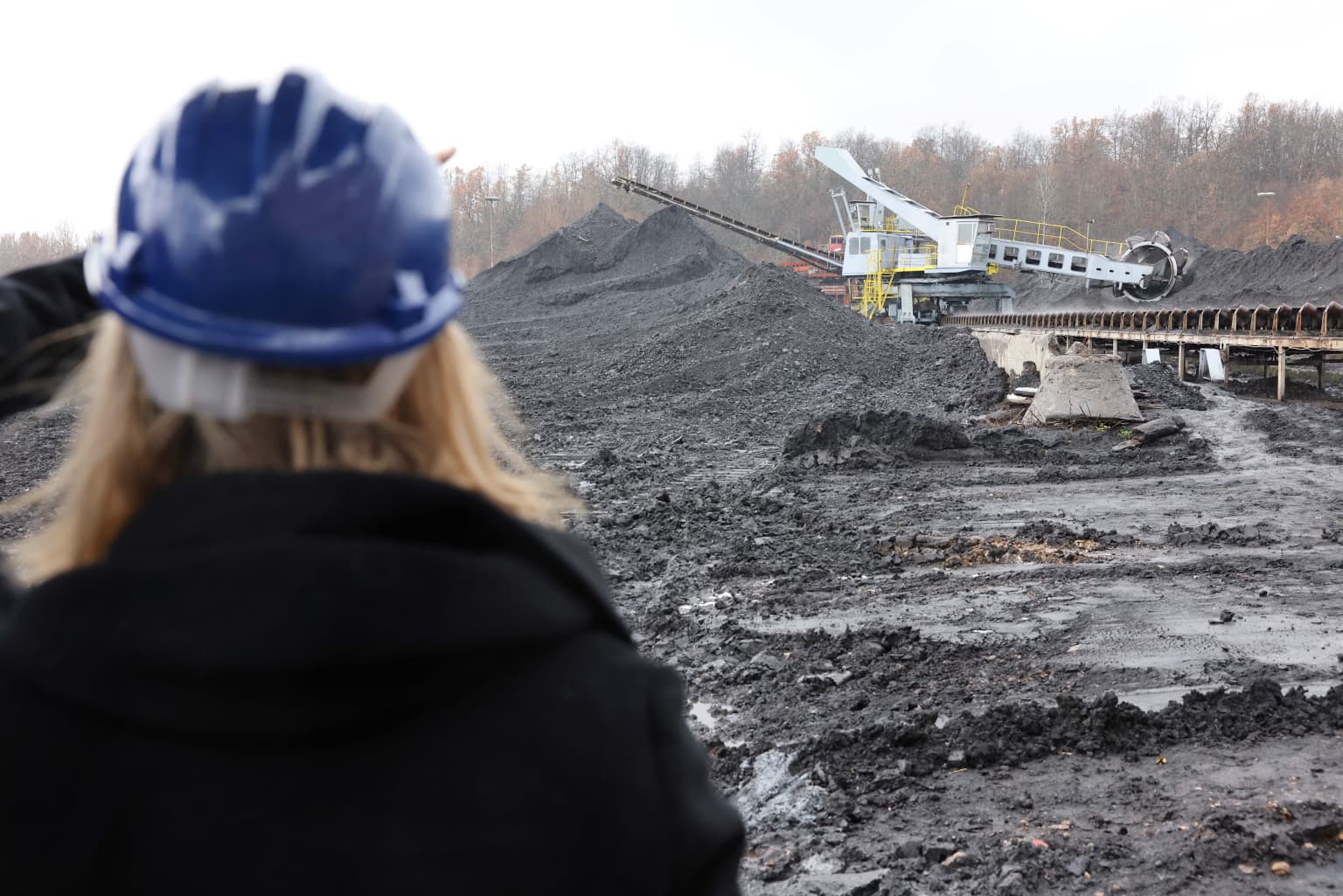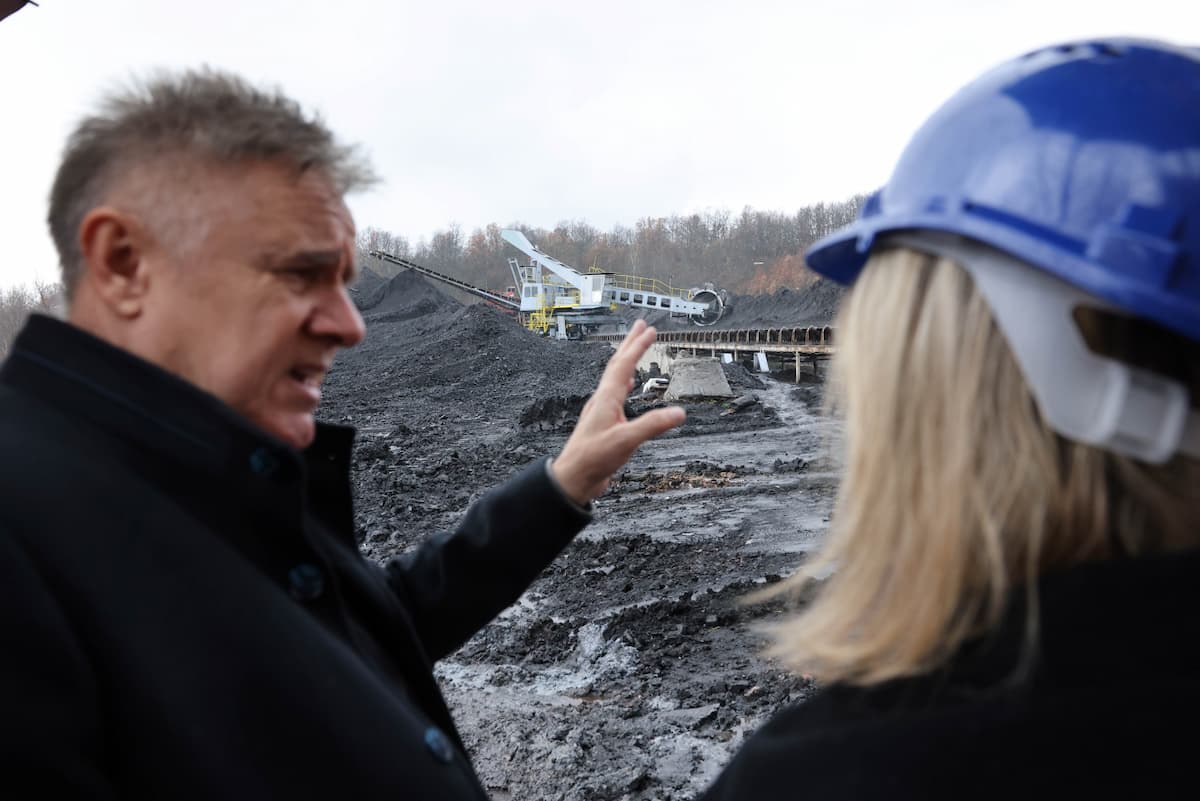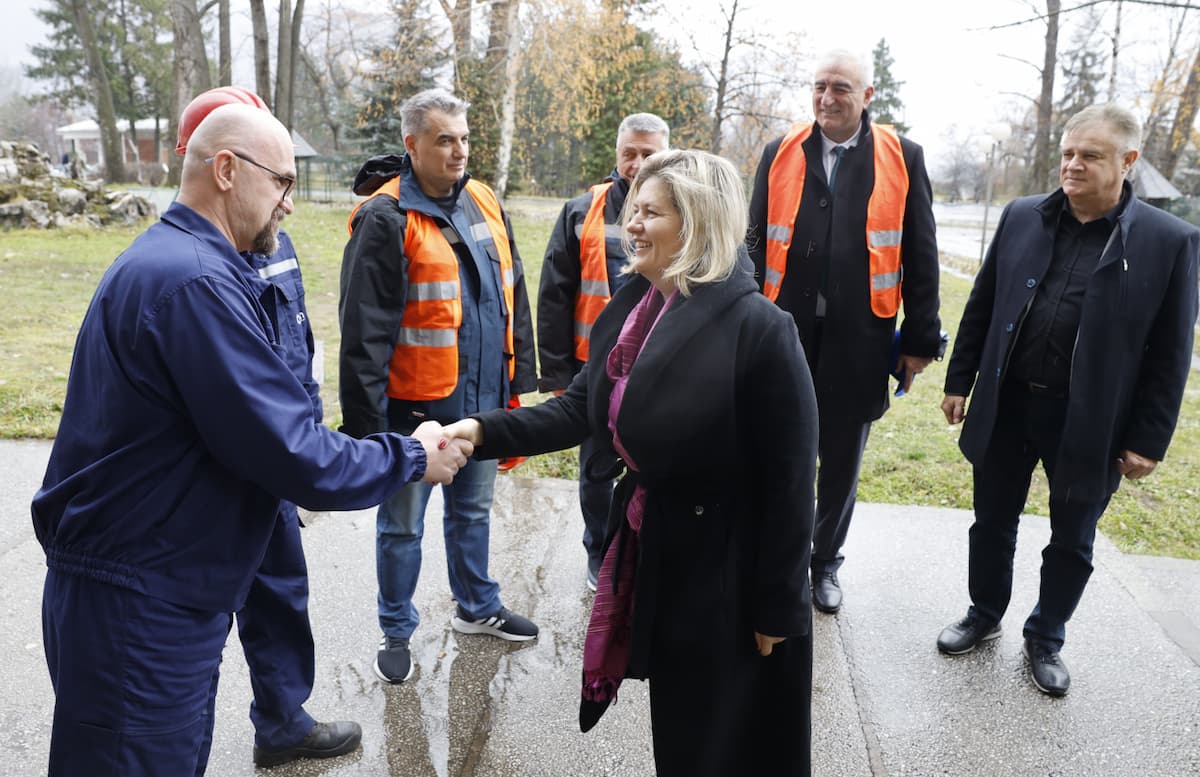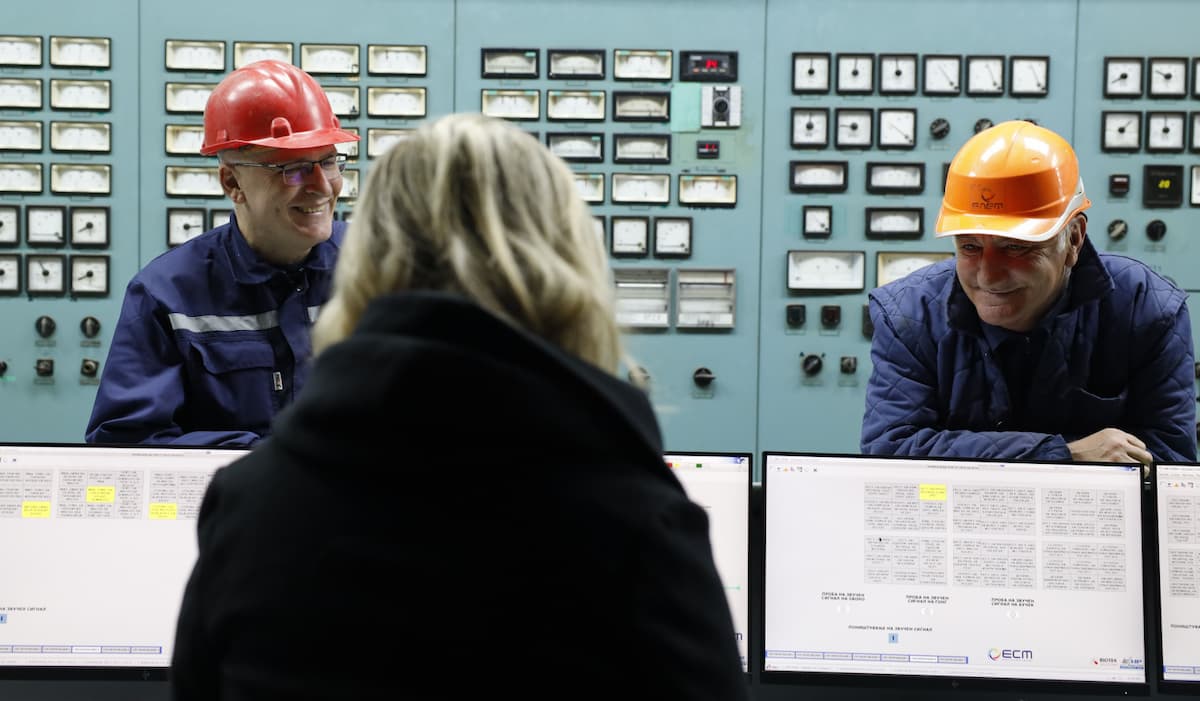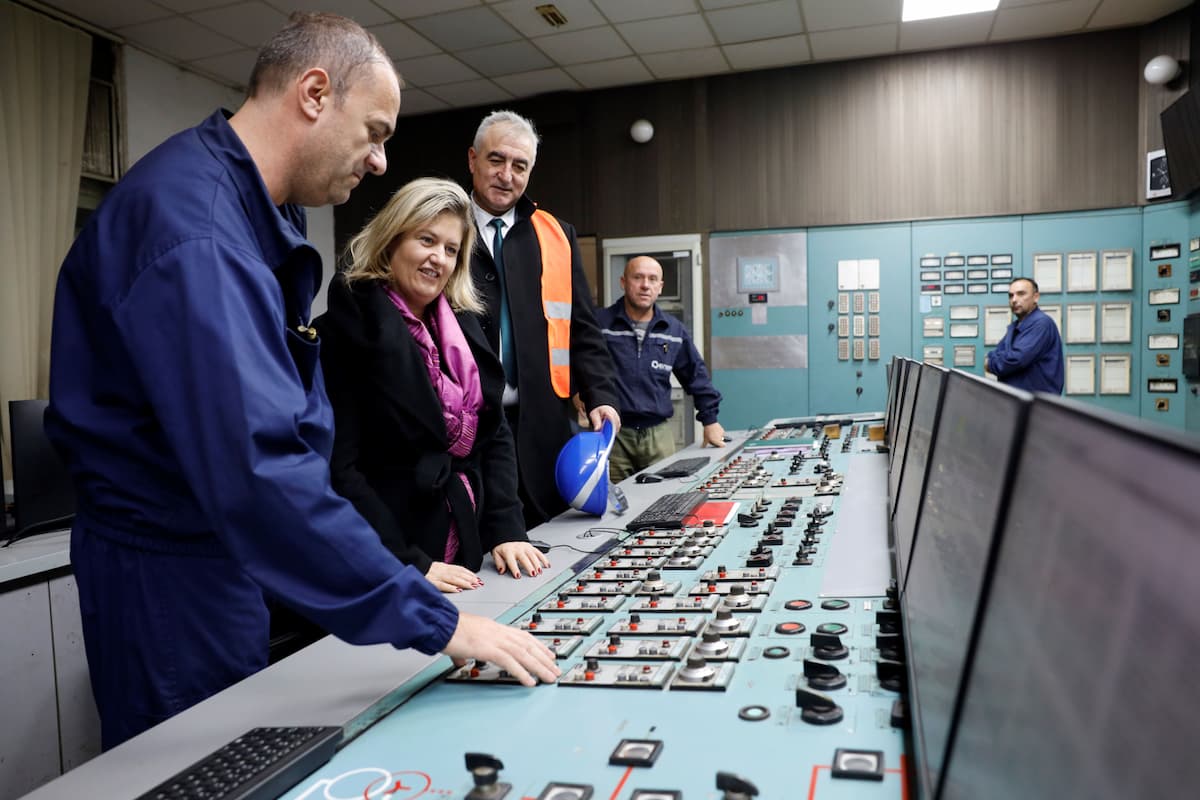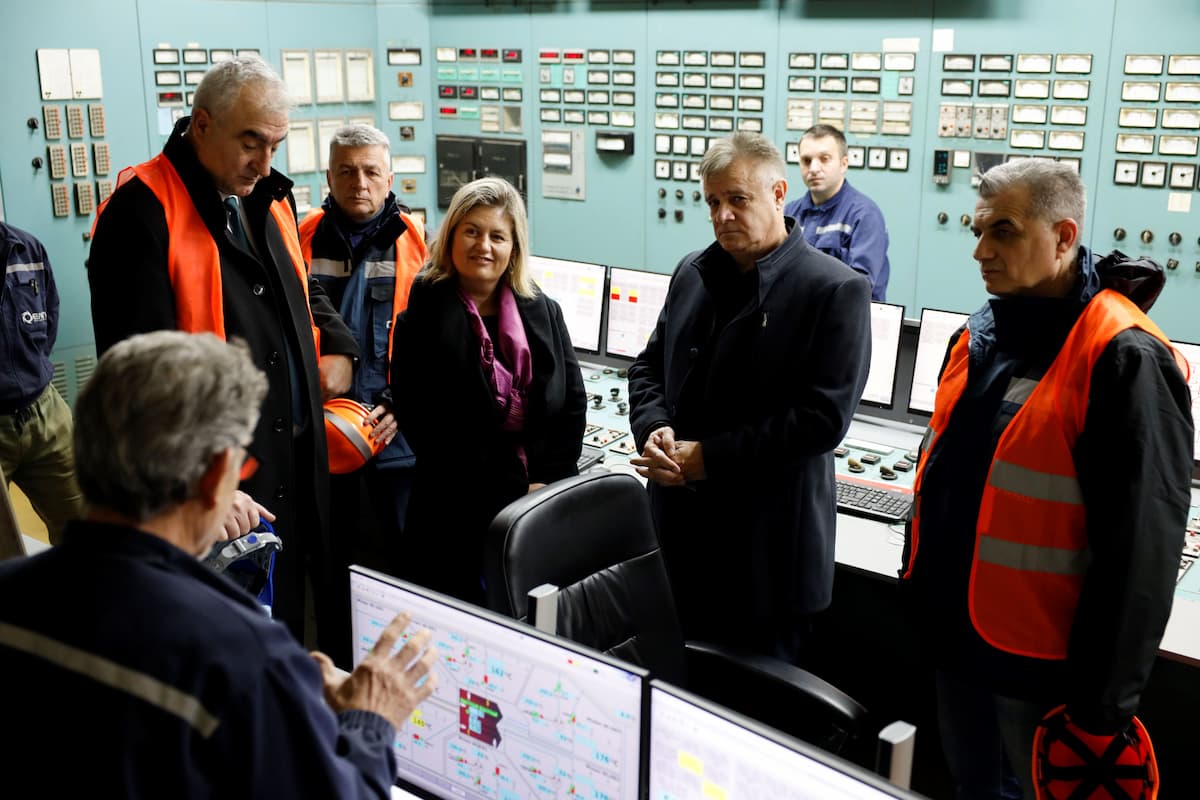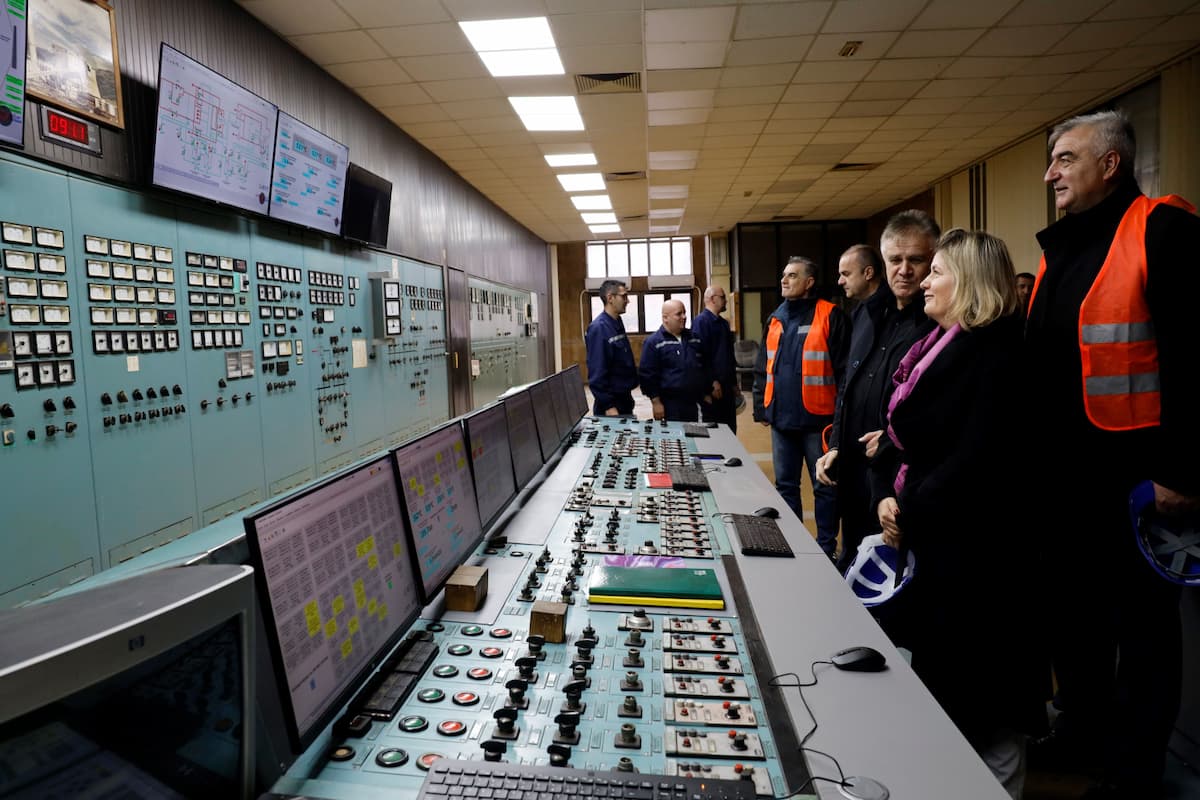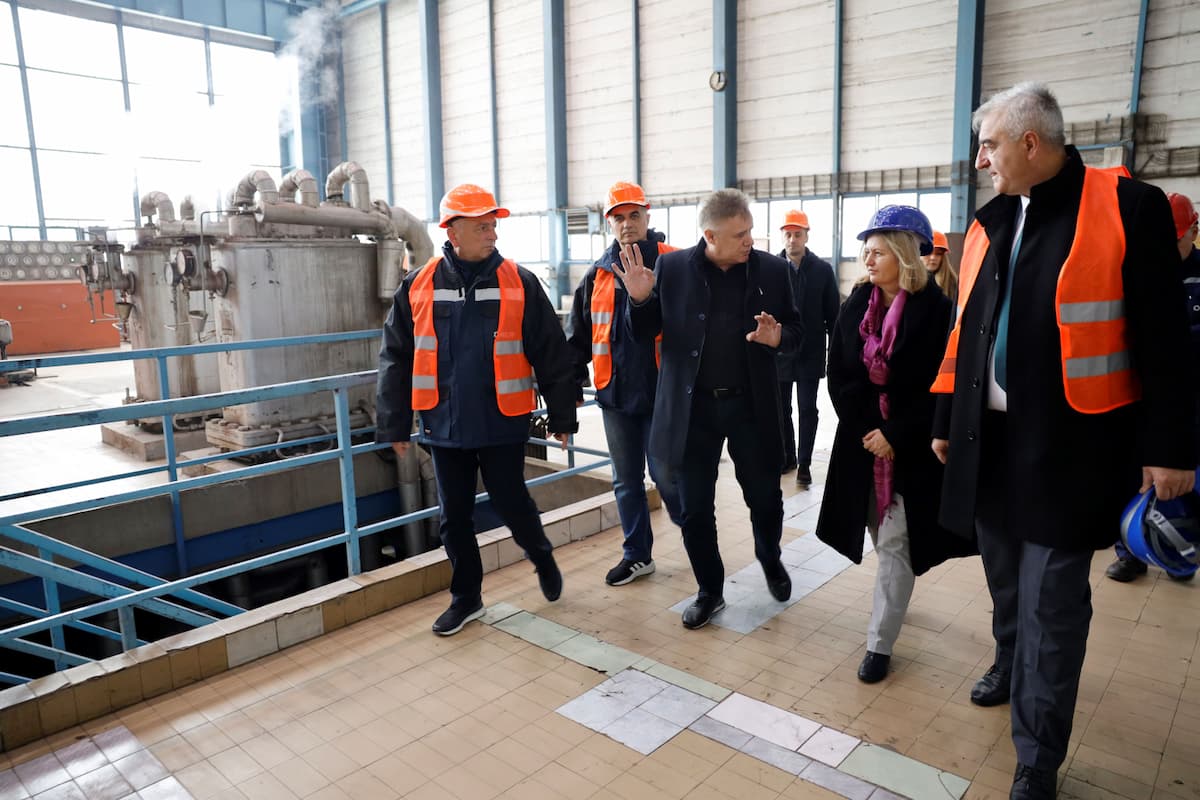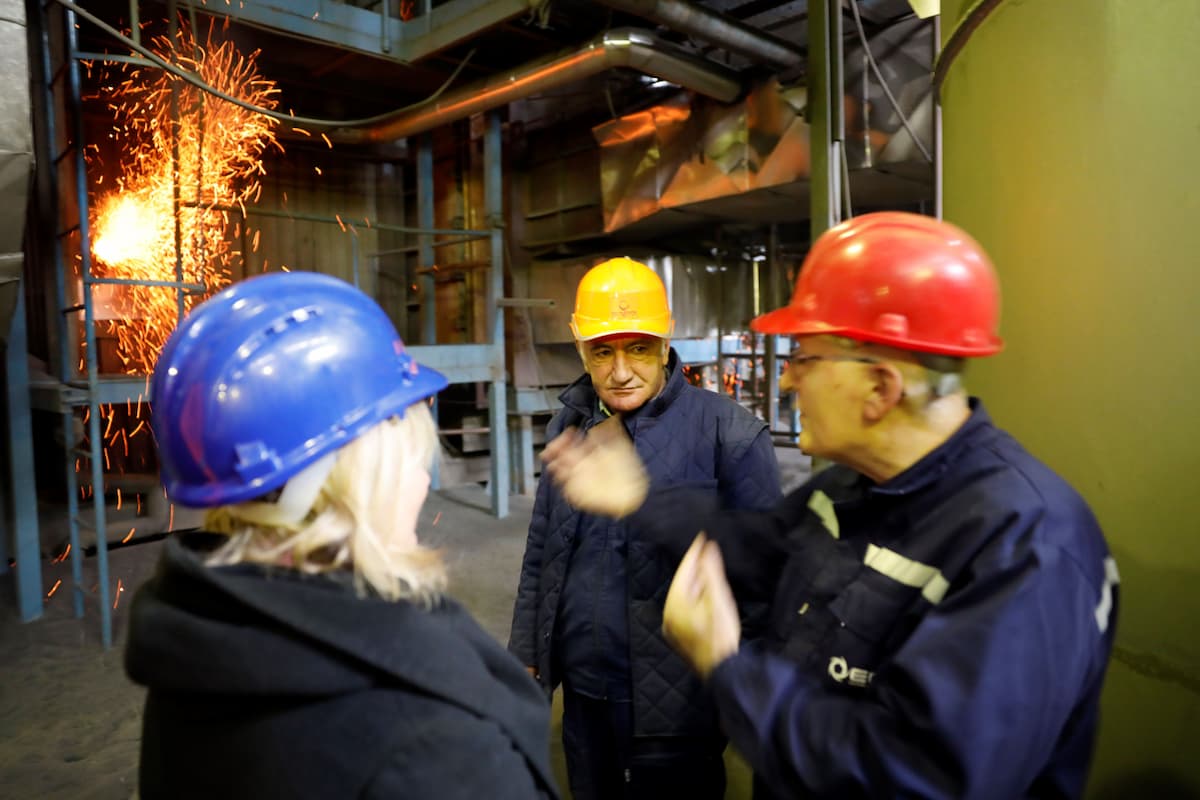The Minister of Energy, Mining and Mineral Resources, Sanja Bozhinovska, visited the Oslomej Thermal Power Plant near Kichevo—one of the country's key energy facilities. The visit is part of the Minister’s commitment to regularly inspect energy facilities in order to get a first-hand understanding of the situation on the ground and accelerate the energy transition toward stability and independence.
“The condition we encountered is bad, and we won’t hide that. But I can say that maximum effort is being made—sometimes even the impossible—to stabilize the capacities. Thanks to our expert teams and the new management, we are already seeing positive results,” said Minister Bozhinovska.
The Minister was welcomed by members of the ESM management team and directors of REK Oslomej, who thoroughly briefed her on the current situation and the conditions inherited after the leadership change. Bozhinovska toured the facility, including the machine building, the turbine, the boiler site, and the control block.
“Machines that are struggling with the weight of time, coal that’s far from the quality needed to support production, and equipment that urgently needs replacement—this is just part of the catastrophic state REK Oslomej was left in. But beyond the challenges, there’s something else here: dedicated people who refuse to give up, and transformation plans that promise a new era,” Bozhinovska emphasized.
The Director of REK Oslomej, Sasho Vrencoski, reported that despite depleted coal reserves, a catastrophic inherited condition, lack of proper maintenance, and half of the necessary components being non-functional, REK Oslomej still managed to contribute energy to the grid for nearly half a month—helping stabilize the heating season for citizens across Macedonia.
“Thanks to the joint efforts of the new management and the employees, we managed to prepare the capacity within a short time frame and connect it to the energy system to increase domestic electricity production. If coal supply is ensured, we hope the thermal power plant will be able to respond to the challenges of the coming winter months,” said Vrencoski.
Minister Bozhinovska also expressed her wish to speak directly with employees to hear about their daily struggles. One worker, with 40 years of experience at this facility, explained to the Minister how they had to use all their experience and knowledge to get the best out of the low-quality coal previously delivered—which they still use to avoid additional costs for the state. Together with his colleagues, he said they managed to mitigate further damage to worn-out machines. He urged the Minister to enforce strict controls on the quality of coal being procured.
Bozhinovska thanked him for his 40 years of dedicated service and assured employees that the era of waste, backdoor deals, and negligence toward vital energy capacities is over—and that such practices will no longer be tolerated, but rather strictly sanctioned.
The Minister also visited the laboratory, where staff showed her how they obtain the most accurate results regarding coal composition. They assured her of their reliability, saying: “We know this plant, the coal, and the old machines better than anyone. With the new equipment we’ve recently received, our precision has improved—and with even more modern tools, we could be the most accurate in the region.”
Instead of holding a formal meeting in the offices, the Minister chose to join the employees in the cafeteria, where they had more time for discussion. They talked about the current heating season's challenges and the long-term transformation plans. Minister Bozhinovska emphasized the importance of ambitious investments in clean energy.
Vladimir Pejoski, Director for Development and Investment, presented the 2025 plans, noting that the transformation is already underway. “We’re building new renewable energy capacities. Just a few days ago, we launched a tender for the construction of two photovoltaic plants—PEC Oslomej 2 and PEC Bitola 1—with a total installed capacity of 30 MW. We are also working on feasibility studies for projects that will further boost energy independence.”
“It’s our duty to face reality, but also to show that through work and vision, we can change that reality. I will continue regularly visiting energy facilities throughout Macedonia to gain direct insight and ensure that every effort results in tangible progress. Only with responsible management, professionalism, and commitment can we secure the energy stability and independence our citizens deserve,” Bozhinovska concluded.


